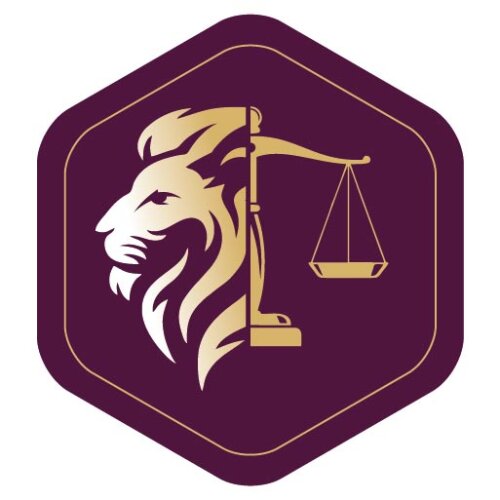Best Faith-Based Law Lawyers in Harare
Share your needs with us, get contacted by law firms.
Free. Takes 2 min.
List of the best lawyers in Harare, Zimbabwe
About Faith-Based Law in Harare, Zimbabwe
Faith-Based Law in Harare, Zimbabwe, encompasses a range of legal frameworks that intersect with religious beliefs and practices. It aims to reconcile religious doctrines with civil obligations, ensuring both are respected within the legal system. In a diverse city like Harare, where multiple faiths coexist, Faith-Based Law plays a crucial role in addressing conflicts and facilitating understanding among different religious communities. It covers areas such as marriage and divorce, inheritance, and religious freedoms, providing legal guidance and conflict resolution underpinned by faith-related principles.
Why You May Need a Lawyer
There are various situations where individuals may require legal assistance in the realm of Faith-Based Law in Harare. Common reasons include:
- Navigating religious marriage and divorce laws to ensure compliance with both religious and state requirements.
- Resolving inheritance disputes that arise from religious differences or beliefs.
- Defending religious freedoms when they are perceived to be under threat by government actions or other entities.
- Understanding employment laws to ensure religious practices are respected in the workplace.
- Addressing issues related to the establishment and governance of religious institutions.
Local Laws Overview
Key aspects of local laws in Harare relevant to Faith-Based Law include:
- Marriage and Divorce Laws: These laws account for customary, civil, and religious marriages, with specific requirements and procedures for each type.
- Inheritance Laws: The legal system allows for the application of religious laws in inheritance cases, provided they do not conflict with the constitutional rights.
- Freedom of Religion: Enshrined in the Zimbabwean Constitution, these laws protect the right to practice one's religion freely, subject to limitations that protect public safety, order, and health.
- Employment Laws: Employers must accommodate religious practices such as prayer times and clothing, provided they do not impose undue hardship on business operations.
Frequently Asked Questions
What is Faith-Based Law?
Faith-Based Law refers to legal principles and frameworks that incorporate religious beliefs and practices, ensuring that individuals' religious practices are honored within the legal context.
Can religious laws override state laws?
No, state laws generally take precedence. However, religious laws may be recognized or applied in certain cases, such as marriage and inheritance, if they do not conflict with constitutional rights.
Do I need a lawyer for religious marriage or divorce?
Yes, a lawyer can help navigate the legal requirements and ensure that religious and state law requirements are met.
How is freedom of religion protected in Harare?
The Zimbabwean Constitution protects the right to practice religion freely, with certain limitations to safeguard public safety and order.
Can a person be compelled to follow their birth religion legally?
No, individuals have the right to religious conversion or to practice no religion without legal obligation to follow their birth religion.
Are religious differences considered in inheritance disputes?
Yes, religious considerations can be part of inheritance disputes, provided they align with state laws and constitutional rights.
How can I ensure my workplace respects religious practices?
Employers are expected to accommodate religious practices unless it causes undue hardship. A lawyer can provide guidance if issues arise.
Can religious institutions in Harare govern themselves independently?
Religious institutions have legal autonomy in governance issues, but must comply with local laws and regulations.
What legal recourse exists if religious freedoms are violated?
You can approach the courts for relief if you believe your religious freedoms are unlawfully restricted or violated.
Is Faith-Based Law applicable to non-religious individuals?
Faith-Based Law primarily addresses issues related to religious contexts and is not typically applicable to non-religious legal matters.
Additional Resources
For more information on Faith-Based Law in Harare, consider reaching out to the following resources:
- The Zimbabwean Law Society: Provides legal advice and referrals for qualified lawyers.
- Department of Religious Affairs: Offers resources for understanding religious rights and obligations.
- Local Faith-Based Organizations: Can provide community-specific guidance and support.
Next Steps
If you require legal assistance in the field of Faith-Based Law, consider taking the following steps:
- Research and locate a qualified lawyer specializing in Faith-Based Law in Harare.
- Prepare any relevant documents or information needed for your legal consultation.
- Schedule a meeting with a lawyer to discuss your legal concerns and options.
- Consider consulting local religious leaders or community representatives for additional guidance and support.
Lawzana helps you find the best lawyers and law firms in Harare through a curated and pre-screened list of qualified legal professionals. Our platform offers rankings and detailed profiles of attorneys and law firms, allowing you to compare based on practice areas, including Faith-Based Law, experience, and client feedback.
Each profile includes a description of the firm's areas of practice, client reviews, team members and partners, year of establishment, spoken languages, office locations, contact information, social media presence, and any published articles or resources. Most firms on our platform speak English and are experienced in both local and international legal matters.
Get a quote from top-rated law firms in Harare, Zimbabwe — quickly, securely, and without unnecessary hassle.
Disclaimer:
The information provided on this page is for general informational purposes only and does not constitute legal advice. While we strive to ensure the accuracy and relevance of the content, legal information may change over time, and interpretations of the law can vary. You should always consult with a qualified legal professional for advice specific to your situation.
We disclaim all liability for actions taken or not taken based on the content of this page. If you believe any information is incorrect or outdated, please contact us, and we will review and update it where appropriate.
















